Follow politicians for a living for as many years as I have and you’ll realize that they’re all playing the same games, telling the same lies, manipulating the same polls, crying the same crocodile tears, all in an effort to fool us into thinking they’re in it for us, when too many of them are in it for themselves. No matter which party you love or loathe, they’re all guilty of playing politics with your money.
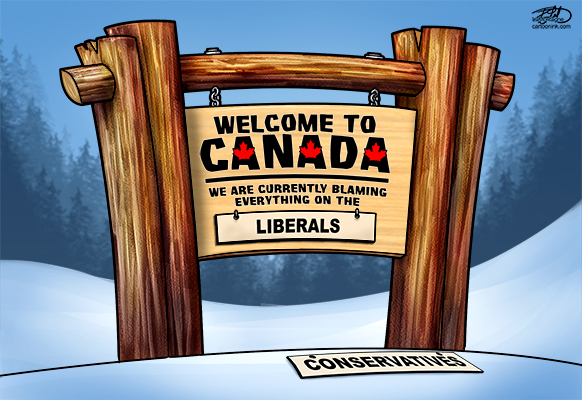 We are reactionary, emotional, instinctual animals operating under the false belief that because we walk upright and know how to work a remote control, it somehow elevates us to the height of wisdom and intellect. And yet, we all fall for basic marketing manipulations every day. It’s the reason we buy all of the food, clothing and trappings of modernity that we think will fulfill us. It’s all sales, and politicians are just elite-level salespeople.
We are reactionary, emotional, instinctual animals operating under the false belief that because we walk upright and know how to work a remote control, it somehow elevates us to the height of wisdom and intellect. And yet, we all fall for basic marketing manipulations every day. It’s the reason we buy all of the food, clothing and trappings of modernity that we think will fulfill us. It’s all sales, and politicians are just elite-level salespeople.
They’re hedging their bets, shoveling promise after promise, just hoping that one of their pretend commitments resonates enough with you so that you will believe that they’ve got your best interests at heart.
Which brings me to social media.
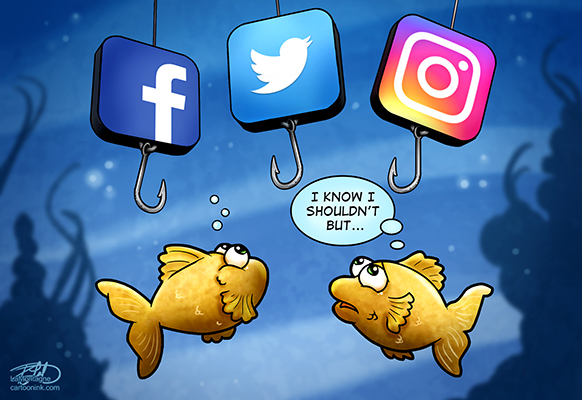 You know it’s gotten pretty bad when the vitriol and rhetoric being passed around by regular folks online makes the politicians look like rank amateurs. The shit people say to each other on Facebook, Twitter, Instagram and in the comments sections of news sites is the reason I killed all of my social media feeds some time ago.
You know it’s gotten pretty bad when the vitriol and rhetoric being passed around by regular folks online makes the politicians look like rank amateurs. The shit people say to each other on Facebook, Twitter, Instagram and in the comments sections of news sites is the reason I killed all of my social media feeds some time ago.
The next time you’re tempted to go on a political rant, or engage in an online argument, consider the following points.
You’re never going to change somebody’s mind about anything by calling them stupid.
If everybody who talks a big game online actually went out and voted, the high turnout would be unprecedented.
The people we associate with on social media generally share our perspectives, so most of the time, you’re preaching to the choir. You’re not convincing anybody of anything except that you both share the same bias.
There are a lot of damaged people out there and some of them, for one reason or another, get pleasure from pissing off as many people as they can. They might not even disagree with your point of view, but they’ll happily fight with you in the CBC Comments Section, usually under a fake name.
On the other side of the previous point, just because somebody agrees with you online, doesn’t mean you’re right. Wisdom comes from realizing that you don’t know everything, and humbly admitting that you could be wrong, as we all are, a lot more often than we think.
Sharing news story after news story on social media, without thinking about where it came from, just means you’re working without getting paid, failing to ask if the story you’re sharing is even from a legitimate news source. You’re now a volunteer propaganda distributor and they’re making money off of you.
If the most interaction you have with somebody these days is online and you’re constantly complaining about politics and raging about it, it will change how somebody views you in real life. They aren’t separate things. Make no mistake, if somebody knows you in real life, they see through your online bullshit.
Ask yourself how likely it is that the person who is arguing against you will change their mind or position based on the fact that you make up cutesy names for politicians (Trudope, Trumpty-Dumpty, etc.) and insult their entire perspective. How likely would you be to change your position?
You have a limited amount of time on this planet. Arguing with strangers about politics is not the best way to spend it. If you were diagnosed with cancer tomorrow, or a family member, or your best friend, would it really matter if a political candidate said something foolish? If this is your one shot at living a fulfilling life, finding meaning, making a difference, how well do those means serve these ends?
 The politician or party you’re voting out this time because you hate him so much? That’s the politician or party who replaced the last guy you voted out because you hated him so much. If one was so much better than the other, we wouldn’t keep swapping them.
The politician or party you’re voting out this time because you hate him so much? That’s the politician or party who replaced the last guy you voted out because you hated him so much. If one was so much better than the other, we wouldn’t keep swapping them.
We compare our own best traits to the worst traits in others, convinced we’re better. We pretend to be virtuous and empathetic online, but race to beat somebody to a parking spot at the mall. We say things to people online that we would never say in real life to another’s face because then you would have to look them in the eye and see the damage you’ve done.
 Most people end up voting against somebody they dislike, rather than for somebody they like, the lesser of evils. You leave the ballot box with a heavy sigh, thinking, “well, I did my duty,” but you don’t feel that good about it.
Most people end up voting against somebody they dislike, rather than for somebody they like, the lesser of evils. You leave the ballot box with a heavy sigh, thinking, “well, I did my duty,” but you don’t feel that good about it.
I’m not going to try to fan the flames of democracy here, inspire you to make a difference, or pile on the platitudes about people dying in other countries for the right to vote, or telling you that if you don’t vote, you can’t complain.
Lots of people don’t vote, and they still complain.
I still think it’s important to vote, what really amounts to the bare minimum of participation in the democratic process, but it gets harder and harder to see any benefit as the years go on. With a stage full of disingenuous bad actors, the whole thing feels rather futile, but then again, it always has.
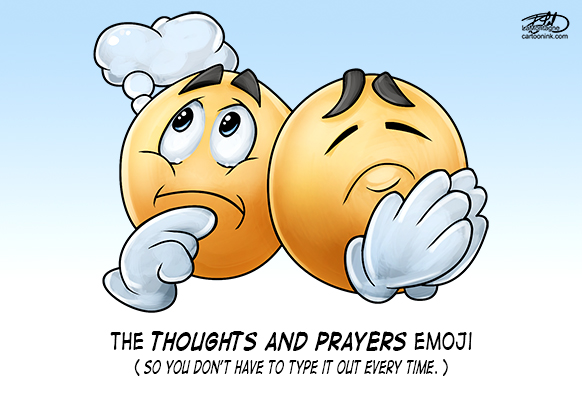 What makes it harder, however, is the false outrage online, the manipulation of some facts, the complete fabrication of others, and how people treat each other, especially when this electoral exercise is in progress.
What makes it harder, however, is the false outrage online, the manipulation of some facts, the complete fabrication of others, and how people treat each other, especially when this electoral exercise is in progress.
What’s worse is that people are sharing false information and fake news stories and they don’t even seem to care that they’re being duped, because the fantasy they share supports what they want to believe. But we’ll call out a politician for even the tiniest of lies or indiscretions.
Pot, meet kettle.
You are free to champion one candidate while reviling another. But it is important to understand that your preferences are not shared by everyone else. We all have a bias, we all have different life experience, and we all see the world through a different lens. A person who is trying to make a living in downtown Toronto has different challenges than a person trying to make a living in rural Saskatchewan.
But they probably still have a spouse, children, aging parents, failing health, car payments, a mortgage, a job they tolerate, debts they struggle to pay, and lives that didn’t turn out as well as they’d hoped, or were promised.
We are more alike than different.
This is why social media is so dangerous, because we gravitate toward those with like-minded opinions; we cluster with those people and then go looking for an enemy, which is the cluster of those other people whose opinions and ideals differ from our own. We insulate ourselves from diversity and extinguish our own empathy.
Then we grow to hate each other, a little more every day.
You can’t blame that on politicians.
© Patrick LaMontagne
If you’d like to receive my newsletter which features blog posts, new paintings and editorial cartoons, follow this link to the sign up form.
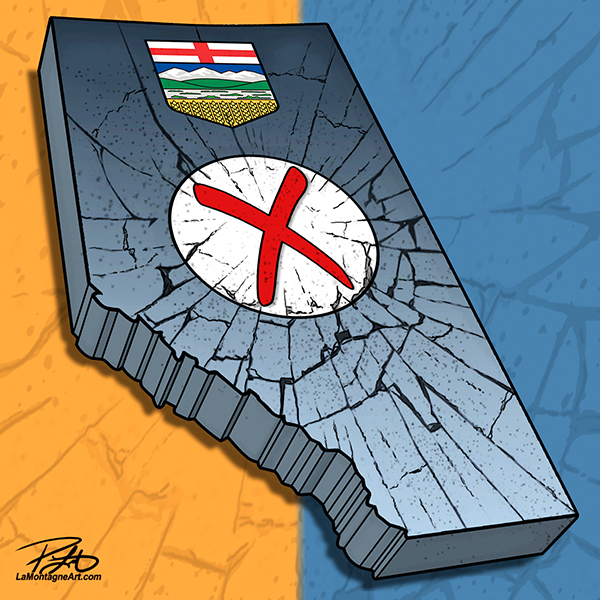
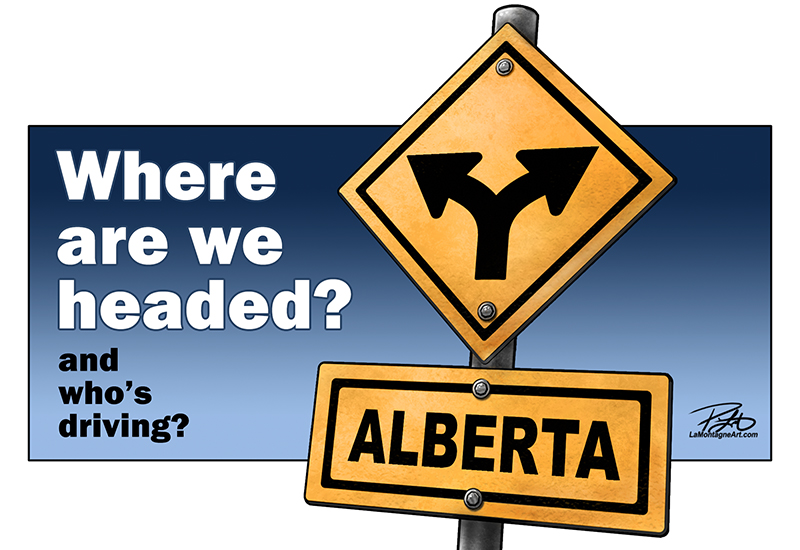
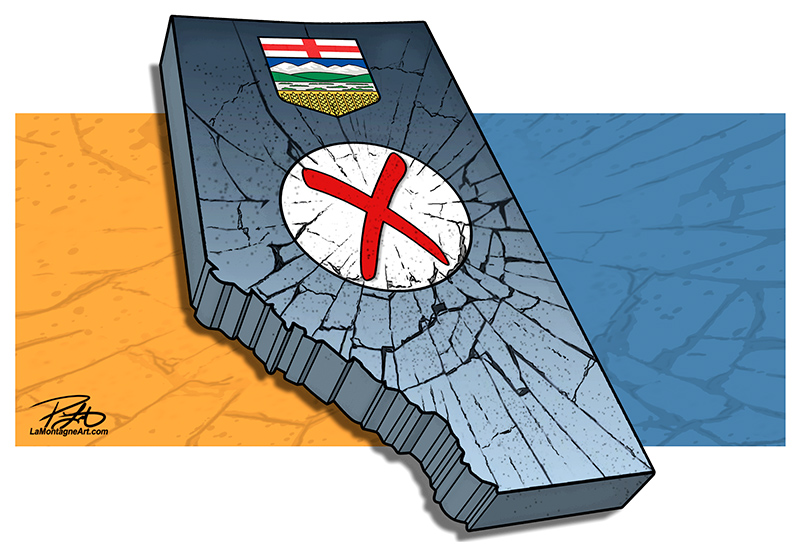 I could have written this before election day to encourage people to get out and make a difference, but to imagine I have that much influence over anyone would be arrogant.
I could have written this before election day to encourage people to get out and make a difference, but to imagine I have that much influence over anyone would be arrogant.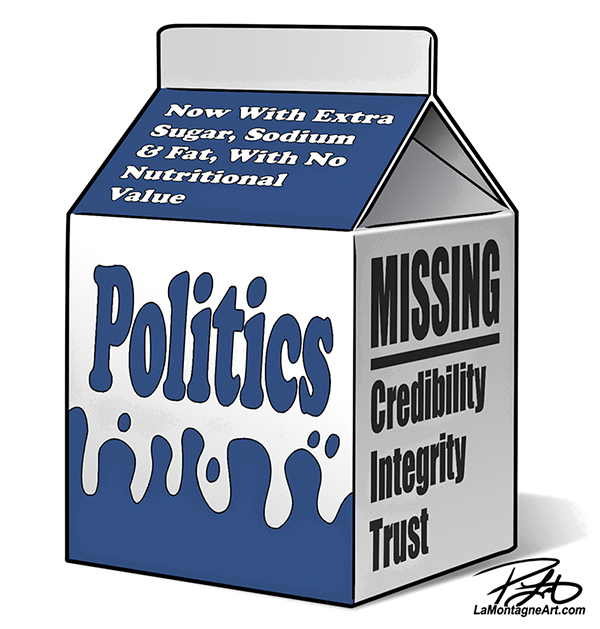
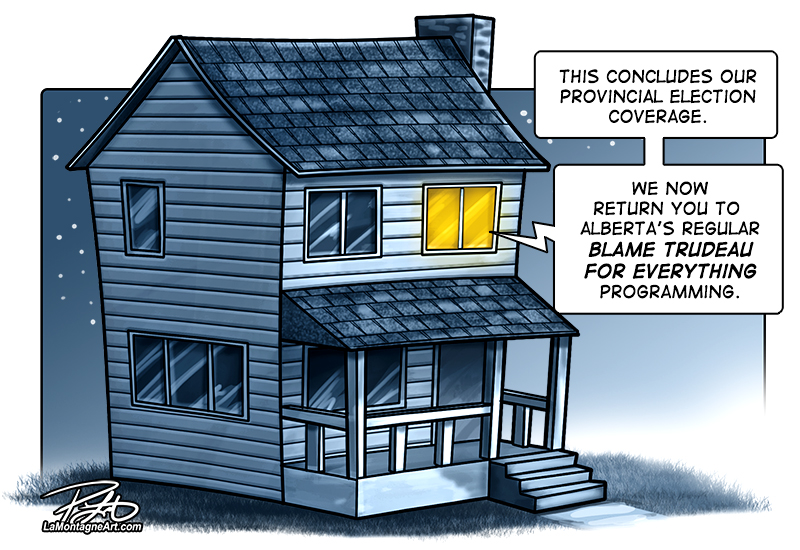 ____
____





